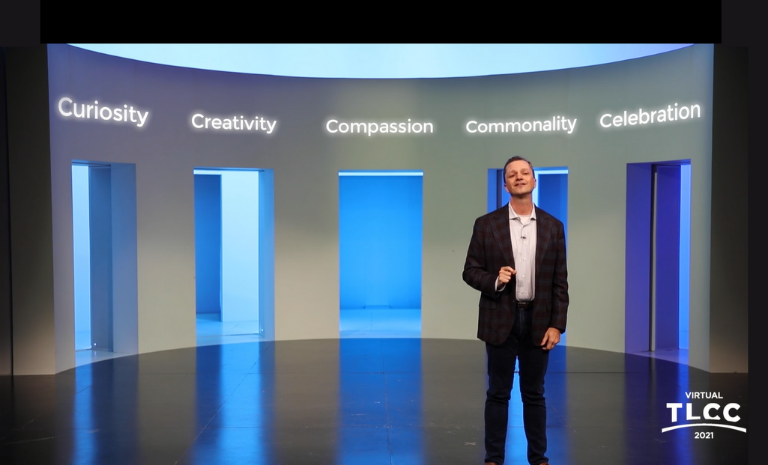Arts and Culture
Article
Insights & Innovation
d92e3fa1-8cf2-43d9-aef1-076c8602ce09
5 min
https://edge.sitecorecloud.io/tessituraneab9a-tessiturane5642-staging-5396/media/Images/Discover-Images/Thought-Leadership/Adyen-Presskit-9-POS-Terminal-payment--765x465.png?h=465&iar=0&w=768
Lessons for the arts and culture sector from the company that powers payments for Uber, Spotify, and eBay
The next generation of payment processing

President & CEO, Tessitura
The next generation of payment processing
8/9/2022
5 min
You may not know Adyen, but I’ll bet your credit card does.

Adyen is a global payment powerhouse that processed half a trillion dollars in payments last year alone. They are the payment engine for Uber, Spotify, Microsoft, McDonalds, and now: Tessitura.
Tessitura Merchant Services, powered by Adyen technology, launched early this year and now has dozens of cultural organizations taking advantage of its service. I recently caught up with Brian Dammeir, President of Adyen North America, to ask a simple question: what can the arts and culture sector learn from a next-generation payment company?
New business models simplify a complicated industry
As many accountants would agree, managing payment processing is a lot like a trip to the dentist: necessary but painful. Historically, the payment industry has been endlessly complicated. The journey from a customer’s wallet to your bank account typically requires several companies, fees, fraud protection services and — unfortunately — opportunities for error. As Brian explained, Adyen was created to “abstract all that complexity” and give businesses and their customers a simple, secure experience, reducing the number of hops from your customer to your bank account.
As arts and culture businesses work to keep up operations with fewer resources, working with a provider like Adyen saves time by making the whole payment process much more efficient.
Every region speaks a different payment language
Adyen processes payments in nearly every country on the planet. Their mantra is: “Technology is global but payments are local.” The obvious example of this is different card providers in different countries. But Adyen sees other, sometimes surprising, differences: did we know that many Germans still prefer cash while nearby Sweden is virtually cashless? Affinity for “buy now, pay later” options like Klarna also appear to be cultural, not just by geography but also by generation. Which brings me to:
Payment loyalty is generational
Brian has a fascinating take on generational behavior around payments, something he referred to as the “expansion in loyalty from banks to tech.” As he explained, Baby Boomers tend to put their trust in traditional financial brands like Visa, Mastercard, or your local credit union. Ask a Gen Z about payments and they also claim affinity to tech companies like PayPal, Venmo, and CashApp.
If you have multi-generational audiences, you need a multi-generational approach to payment processing.
What does that mean for arts and culture? If you have multi-generational audiences, you need a multi-generational approach to payment processing. This is a major reason Tessitura chose to partner with Adyen, which continually adds new payment options to their service.
Meet your customers at their wallets
From coins to cards to cellphones, it seems that payments and pockets have always gone together. Now that a “wallet” can be both physical and digital, it is crucial for businesses to meet their customers in both realms. Brian pointed out that Adyen began as a digital-only offering, cutting their teeth with tech companies like Spotify and eBay. As they moved into other channels, like bricks-and-mortar retail (Levi’s) and food service (McDonalds), Adyen has kept their digital-first approach, allowing them to provide the same experience regardless of how the consumer defines “wallet.” This has also allowed companies like McDonalds to have a single payment experience whether you are ordering at home, on a mobile or at the register. Replace “French fries” with “Tonight’s event” and you can see how Adyen is helping arts and culture organizations with their omnichannel approach as well.
Which brings me to the final insight Brian shared:
A delightful payment experience should be unmemorable
It is always fascinating to meet someone who is passionate about a part of life that seems hard to love. The dry act of making a payment doesn’t normally fill one with joy. Brian and Adyen are sanguine about their place in the world. They realize that the best way to make payment processing delightful is to make it brief, secure, and frictionless. In short, the best payment is an unmemorable one. Or as Brian put it to me, their goal is to “channel human interactions from transactional moments to more value-driving exchanges.” They recognize that decreasing time and static around payment processing means increasing the time and delightfulness around experiencing culture, something the folks at Adyen are passionate about. As Brian told me, “We are so glad to be partnering with Tessitura and playing a part in helping arts and culture organizations succeed.”
They realize that the best way to make payment processing delightful is to make it brief, secure, and frictionless.
Which brings us all the way back to the beginning. Adyen set out to remove complexity for the business and the consumer, by providing a service that reflects exactly what consumers need, both geographically and generationally. The result is both powerful and nearly invisible. This is why Tessitura is so excited to partner with Adyen. In the end, our job is to maximize the cultural experience and minimize the steps to get there.
You can learn more about Tessitura Merchant Services, powered by Adyen, here.
Topics
Arts & Culture

Why Arts & Culture is Essential Today
Arts & Culture
Healing the world requires five human traits: arts & culture delivers them all.

A contactless customer journey with a personal touch
Arts & Culture / Business Strategy / COVID-19 / Technology / Ticketing & Admissions
How Georgia Aquarium creates a visitor-focused experience
